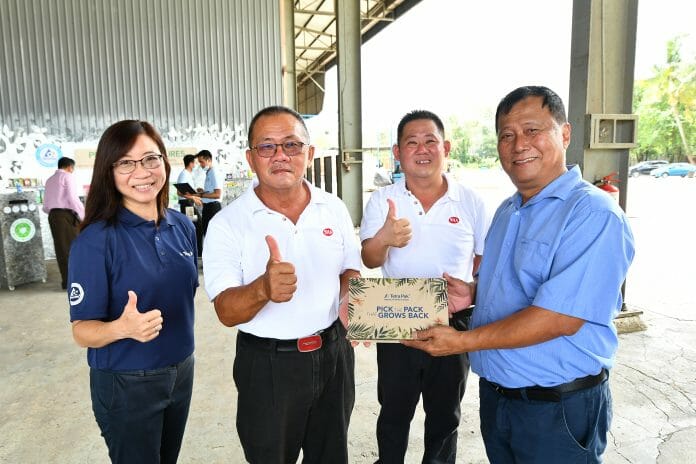Tetra Pak, together with S.H.A. Hup Aik Sdn Bhd (SHA), a sustainability services company today announced a collaboration to modernise an existing polyAl recycling facility, in line with its efforts to reduce waste, enhance packaging collection and recycling infrastructures and enable a low carbon value chain ecosystem for Malaysia.
The RM4.65 million co-investment between Tetra Pak and SHA will see a modernised polyAl facility, increasing its recycling capacity by over 80 percent from 1.4 tonnes per day (TPD) to 8 TPD. Its upgraded technology will also significantly improve the quality of the polyAl products, hence boosting its demand.
Besides enhancing the commercial value of polyAl materials for the recycling industry, the partnership will also encourage collective action among stakeholders in a full life cycle carton approach – an encouraging step to ease the adoption of the extended producer responsibility (EPR) scheme. The improved infrastructure provides a solution for reducing carbon impact not only for Tetra Pak’s operations, but also its customers and other stakeholders in the value chain, accelerating the shared net-zero ambitions.
The collaboration represents a significant step forward for both companies in supporting Malaysia’s journey towards sustainability by boosting the recyclability of Tetra Pak’s carton packaging all the way down to the polyAl component. For Tetra Pak, this investment is a proactive action to maintain the circularity of cartons, ensuring that they are collected, sorted, recycled and continue to provide value. Recycled polyAl is typically recycled into roofing sheets and panel boards which can be used for construction, building, furniture and household product applications.
Currently in its early operational stage, the modernised recycling plant will be officially launched in the first quarter of 2023 with improved efficiency that will further boost Malaysia’s recycling capabilities. This is in line with the nation’s aim of achieving a 40% recycling rate by 2025 and a 76% average collected-for-recycling (CFR) rate by 2030.









